Praise for
THE MYTH OF MORAL JUSTICE: WHY OUR LEGAL SYSTEM FAILS TO DO WHATS RIGHT
As a diagnostician, Thane Rosenbaum is on target. He paints a picture of a frosty system that blasts the emotion, subjectivity, and complexity out of every dispute brought to its doorstep. Citing the bureaucratic efficiencies governing decisions, winner-take-all mentality drummed into lawyers and the professions ethics, which bear only a glancing familiarity with human morality, he exposes a system that encourages lying, permits truth to be stifled, and allows evil men to roam free.... Rosenbaum should be read by every law student in America.New York Times Book Review
Thane Rosenbaums moral critique is considerably enriched and enlivened by the connections he makes between our contemporary legal system and our ideas of justice as they have been influenced by the whole of Western arts and letters.... His book ought to be required reading in law schools and continuing legal educations classes, if only because at least a few of his readers will be humanized by the experience.Washington Post Book World
Thane Rosenbaum bravely attempts to bring philosophy into the courtroom.... If Rosenbaum is serious about reforming the hearts of all people, his best hope is to continue to use his gifts as a novelist to do it. As he surely knows, the world does not need more lawyers. But it can always use a good storyteller.Los Angeles Times Book Review
An engaging critique of the legal system.... Making broad cultural and political referencesto Kafka, Camus, Dickens, Shakespeare, Seinfeld, the Sopranos, the O. J. trial, Bush v. Gore, and the 9/11 Victims Compensation FundMr. Rosenbaum argues for a legal system that embodies a kind of humanist morality, a system in which the participants emotional need to be heard is given as much credence as grievances, crimes and bank accounts.New York Observer
Thane Rosenbaum has done a great service for those of us who love the law but dont like it. He has grabbed the legal system and, like an old purse, shaken out all the detritus from its depths, then carefully put back in a few essential things. A truly compelling book.Stephen J. Dubner, author of Freakonomics and Turbulent Souls
ALSO BY THANE ROSENBAUM
NONFICTION
The Myth of Moral Justice: Why Our Legal System Fails to Do Whats Right
Law Lit, from Atticus Finch to The Practice: A Collection of Great Writing about the Law
FICTION
The Stranger Within Sarah Stein
The Golems of Gotham
Second Hand Smoke
Elijah Visible
PAYBACK
the case for revenge
THANE ROSENBAUM
The University of Chicago Press
Chicago and London
THANE ROSENBAUM is a novelist, essayist, and law professor. He is the author of The Myth of Moral Justice: Why Our Legal System Fails to Do Whats Right, as well as four novels, The Golems of Gotham, Second Hand Smoke, the novel-in-stories, Elijah Visible, and the novel for young adults, The Stranger Within Sarah Stein. His articles, reviews, and essays appear frequently in the New York Times, Los Angeles Times, Wall Street Journal, Washington Post, and Huffington Post, among others. He lives in New York, where he is the John Whelan Distinguished Lecturer in Law at Fordham Law School and directs the Forum on Law, Culture, and Society.
The University of Chicago Press, Chicago 60637
The University of Chicago Press, Ltd., London
2013 by Thane Rosenbaum
All rights reserved. Published 2013.
Printed in the United States of America
22 21 20 19 18 17 16 15 14 13 1 2 3 4 5
ISBN-13: 978-0-226-72661-8 (cloth)
ISBN-13: 978-0-226-04369-2 (e-book)
Library of Congress Cataloging-in-Publication Data
Rosenbaum, Thane.
Payback: the case for revenge / Thane Rosenbaum.
pages cm.
Includes bibliographical references and index.
ISBN 978-0-226-72661-8 (cloth: alkaline paper) ISBN 978-0-226-04369-2 (e-book)
1. PunishmentPhilosophy. I. Title.
K5103.R674 2013
364.601dc23
2012043341
 This paper meets the requirements of ANSI/NISO Z39.48-1992 (Permanence of Paper).
This paper meets the requirements of ANSI/NISO Z39.48-1992 (Permanence of Paper).
For Danny and Alex
who, in friendship
always go beyond even
CONTENTS
INTRODUCTION
Human beings all long for justice. We are drawn to fairness. All is not right in the moral universe when those who have caused harm go unpunished, when the killers and the cheaters, the rule breakers and advantage takers, are not required to pay for the damage they leave behind.
Nicole Brown Simpson, the wife of O. J. Simpson, and Caylee Anthony, the daughter of Casey Anthony, are tragic symbols of justice denied, of legal failure, of the false promise that it is possible to right a wrong. Bankers and traders, who risked the money, homes, and livelihoods of others without ever having to spend a night in jail for their own excesses, provided the inspiration and resentments of the Occupy Wall Street movement. The assassination of Osama bin Laden and the imprisoning of Bernard Madoff to an unprecedented 150 years were appreciated by most people as just deserts.
These were not mere news items, tidbits of tabloid fodder for the culturally informed. These stories were obsessively followed because we are all sensitive to unfairness that has gone too far. During such times we zero in on moral outrage knowing that the difference between justice and injustice is very much a zero-sum game. We all gain when wrongdoers are punished, and we all lose when they are not.
Justice is not an abstract concept; it also evokes palpable feelings. Believing that wrongs should be righted is not a matter merely of personal opinion. The idea that people can get away with murder or highway robbery epitomizes moral revulsion at its most revolting. Injustice summons forth feelings that are deeply visceralcausing minds to race and emotions to stir. No one is casual about it, and no one is indifferent to it. Injustice strikes at the core of what it means to live in a just society, to live in a world that makes moral sense.
And the same is true with revenge. Victims who have been unavenged elicit strong emotional sympathies, sensations that suggest that something has gone seriously and terribly awry. It pulls at the same heartstrings, strikes similar nerve endings, as feelings of injustice. The gut-wrenching sensation of justice denied is precisely what sickens the soul of victims whose payback went unredeemed. Emotionally we all appreciate that victims cannot be expected to forget what happened to them. No one should be forced to accept that wrongdoers will not receive their due. Whatever debt was created surely cannot remain forever unsettled, written off like a bad loan that the victim can ill afford to let go.
Justice is not as dispassionate as the legal system has instructed us to accept. And vengeance is not as irrational as we have been taught to believe. They are not polar opposites but, rather, codependencies. Their moral appeal is lodged in the same sectors of the human brain. Actually, justice and vengeance are mirror images of one another. There is no justice unless victims feel avenged; and vengeance that is disproportionately taken is not just.
We accept legal rulings when justice is servednot simply when the law has spoken. If we dont feel the just in justice, we will walk away from the law like any unavenged victim who knows that the score remains unsettled and that payback is still owed. This is why running away from revenge, pretending that reclaiming honor is not an honorable pursuit, presents similar moral consequences as living in a society where the guilty go unpunished while citizens are asked to accept that justice was done.
Next page


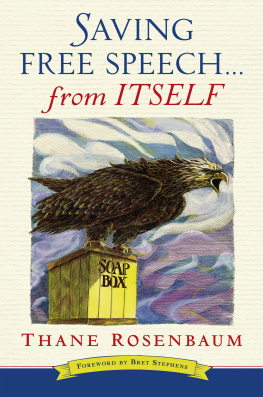
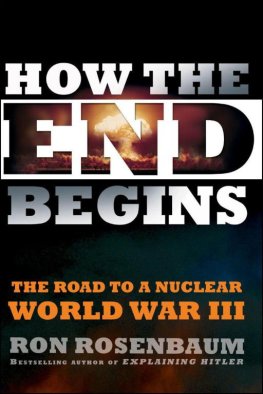
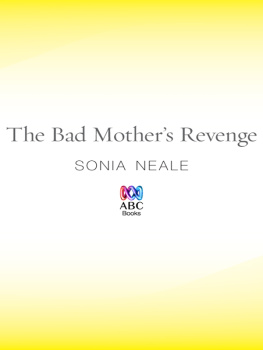
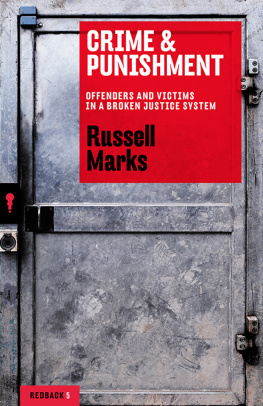
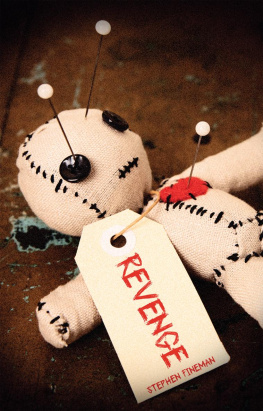


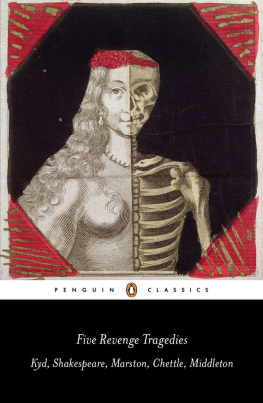
 This paper meets the requirements of ANSI/NISO Z39.48-1992 (Permanence of Paper).
This paper meets the requirements of ANSI/NISO Z39.48-1992 (Permanence of Paper).